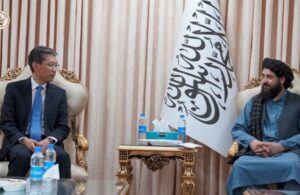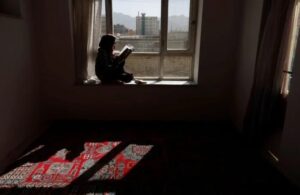KANDAHAR CITY (SW) – A number of farmers in the southern provinces say that after the ban on planting opium, they have not been able to earn enough from their fields to support their lives.
These farmers say that there has been no cooperation with them for the distribution of alternative planting of opium.
Said Ahmed, a farmer in Kandahar, told Salam Watandar: “They have stopped opium cultivation for us for one and a half years. We planted wheat, but it did not yield well. We want them to give us modified seeds.”
Gul Agha, another farmer in Kandahar, says: “There has been no cooperation with us. We planted wheat, when we get the harvest, it will be cheap, the crops will not produce the right harvest, there is not enough water.”
In the past two decades, farmers in the southern provinces, especially Kandahar, Helmand and Uruzgan, provided most of their life needs through cultivation of opium and other types of drugs. However, the prohibition of planting opium and the lack of suitable alternative planting have made a number of farmers face economic problems.
Mirajan, a farmer in Helmand, says: “Until now, we have not found a crop that earns as much as opium. Of course, there are some crops, but we don’t have the facilities to cultivate it because it costs a lot, we ask the government to find an alternative crop for us.”
A number of farmers in Kandahar say that saffron and cumin are a good alternative to opium in the lands of this province, which can yield good results, but they need cooperation in this sector.
Ehsanullah, another farmer in Kandahar, says: “Compared to other crops, our lands are good and yield good crops for saffron and cumin. We should be given its modified seeds.”
Meanwhile, there are reports that the United Nations Office on Drugs and Crime has brought experts to Afghanistan to discuss alternative poppy cultivation.
Although it has not confirmed or rejected such a process, the head of counter-narcotics of the Ministry of Interior of the Islamic Emirate says that no cooperation from the United Nations has been done in this regard so far.
Haseebullah Ahmadi, the head of the office of the Ministry of Interior’s Anti-Narcotics Department, told Salam Watandar that this department is ready for any discussion and cooperation with the United Nations. He adds: “We welcome and cooperate with any kind of cooperation and assistance to farmers in the field of alternative cultivation if it takes place.”
On the other hand, Misbahuddin Mustain, the spokesperson of the Ministry of Agriculture, Irrigation and Livestock, says that the current assistance of the United Nations in the field of promoting alternative cultivation of opium in Afghanistan is insufficient, saying: “Our request from the United Nations is to cooperate with the Ministry of Agriculture and our experts in this field.”
Economic expert Zahir Behzad, referring to the effect of poppy cultivation on the income of farmers’ families in some regions of the country, emphasizes that in order to stop these farmers from poppy cultivation, proper alternative seeds should be distributed to them and good marketing should be done for their product. He adds: “The farmers will always be interested in growing opium because of the income they get from opium cultivation. The government can make crops such as saffron and others as an alternative to opium cultivation and market it.”
ENDS






